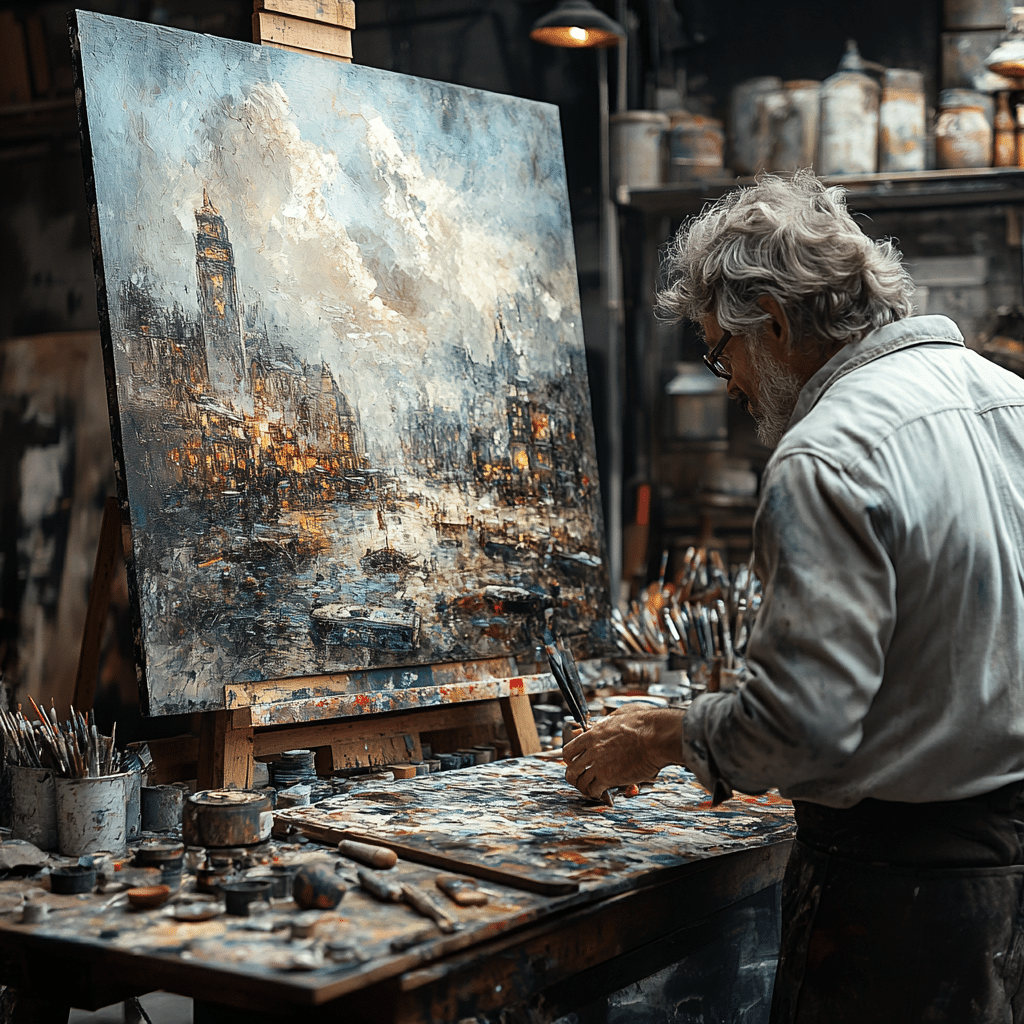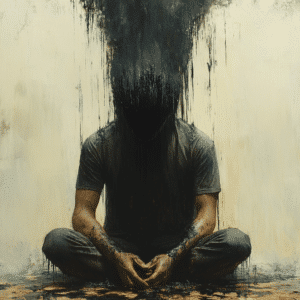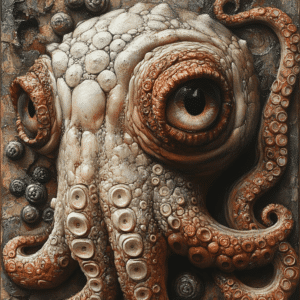Life can be a tough ride for parents dealing with a child’s addiction or coping with the loss of a child due to addiction. The emotional toll is immense; however, developing new hobbies can spark a transformative change in your life. Engaging in hobbies isn’t just a pastime—it’s a powerful tool for healing, self-discovery, and fostering connections. Research shows that developing new hobbies is essential for mental wellness, offering significant relief from stress, anxiety, and depression. When you turn to creativity, community endeavors, or personal growth through a new skill, you not only uplift your own spirit but can also inspire others on similar journeys.
The Impact of Developing New Hobbies on Mental Health
Engaging in hobbies serves as a soothing balm for emotional wounds. The Journal of Positive Psychology reported in 2023 that individuals who participated in creative hobbies experienced improved happiness levels. These pastimes provide a sense of control over one’s life, creating pockets of joy amid turbulent times. A hobby can foster community, a vital element that helps parents feel less alone in their struggles.
Let’s break it down a bit—you’re not just keeping busy; you’re building a new emotional toolkit. Hobbies help transition from feelings of hopelessness to action-oriented, fulfilling pursuits. Whether it’s joining a local art class, taking up gardening, or participating in community service, each hobby contributes uniquely to your mental well-being.
So, take a moment to reflect on what speaks to you. Perhaps you’ve always admired someone who paints beautifully or have been intrigued by the idea of growing your own vegetables. Developing new hobbies opens doors to self-expression and connection—you just have to step inside!

Top 7 Transformative Hobbies to Develop Today
Artistic endeavors are fantastic outlets for emotions. Organizations like the Art Therapy Association highlight how creative expression can foster emotional healing. Whether painting, pottery, or crafting, creative outlets let you express feelings that might be hard to verbalize. Check out local art classes or online platforms like Skillshare, where you can connect with fellow creators and polish your skills.
There’s something magical about nurturing a plant and watching it thrive. A 2024 study by the American Psychological Association found that spending time in nature enhances mood and reduces anxiety. Neighborhood community gardens are popping up everywhere, offering you an avenue to connect with others while digging in the dirt. Organizations like Food Not Lawns have started initiatives to promote urban gardening, a green thumb can be your ticket to happiness!
Mindfulness is more than a buzzword; it’s a lifeline. Numerous studies indicate that incorporating yoga or meditation improves emotional regulation and resilience. Platforms like Headspace serve up guided sessions that are easy to fit into your busy life. A few minutes spent focusing on your breath can help outweigh the emotional burdens you carry.
Cooking is more than preparing meals; it’s a joyful exploration of flavors and creativity. The rise of farm-to-table eateries has sparked a culinary revival, blending health and happiness on our plates. Enroll in a local cooking class or try a subscription service like HelloFresh to expand your kitchen skills while connecting with food lovers.
Physical activity is closely tied to emotional health. Engaging in sports or outdoor adventures like hiking boosts mood and fosters connections with fellow enthusiasts. The National Parks Service organizes community hikes, offering opportunities to bond with others while enjoying nature’s beauty. There’s nothing like breathing in fresh air while making new friends!
Writing can be an incredibly healing journey. Organizations such as WriteLove create safe spaces for individuals to share their experiences. Participating in writing workshops or online communities offers a platform to turn your story into a source of strength, inspiring not only yourself but others who read your work.
Giving back can be a potent antidote for emotional pain. Many parents find solace in organizations that help uplift communities. Engaging with groups like Habitat for Humanity allows you to connect with others while making a difference. Volunteering transforms grief into gratitude, improving mental health and providing a profound sense of purpose.
Embracing Change Through New Hobbies
Let’s face it, embracing new hobbies isn’t always easy, especially when life feels overwhelming. However, developing new hobbies can be an essential part of the healing process, a way to rediscover joy and create new routines. Start small. Find something that excites you, whether that’s painting, gardening, or writing. As you immerse yourself in these activities, you’ll not only gain skills but also experience personal growth and new friendships.
It’s important to remember that the journey of developing new hobbies is a gradual one. Make lists about what captivates your interest and what you hope to achieve through these new pursuits. Setting goals can help guide your journey. Why do you feel drawn to this specific activity? What do you want from it? Over time, these new ventures can reshape your life’s landscape, leading to contentment and emotional resilience.
Imagine this: with every new hobby, you’re peeling away layers of stress, exposing a more vibrant you ready to embrace life’s challenges. As we move into 2024 and beyond, let these hobbies lead you to a life filled with purpose and fulfillment. If you ever feel lost, remember that support is always available—like our resources at Mothers Against addiction dedicated to helping parents navigate these harrowing times.
Start your journey today; your next favorite hobby could be just a step away from transforming your life for the better. And in doing so, allow it to become a beacon of joy and hope amid life’s storms.

Developing New Hobbies to Transform Your Life Today
The Power of a New Passion
Developing new hobbies can really light up your world. Whether you’re picking up painting, learning an instrument, or getting into gardening, these activities can have a profound impact on your mental and emotional well-being. Did you know that some people have turned to unique hobbies to help with recovery? For instance, the journey of Finding joy in recovery can be significantly influenced by the hobbies you choose. Speaking of journeys, the road from Houston To Dallas is not just about the distance; it’s about the experiences we gather along the way, much like the skills we pick up when trying something new.
Trivia to Keep You Inspired
Here’s something fun: engaging in hobbies isn’t just for leisure; it can enhance your life in unexpected ways! For example, did you know that some studies suggest learning new things keeps your brain healthy and can even lead to longer life? A fun fact is that the complex art of a Hieroglyphics translator has become trendy among history buffs who love solving ancient mysteries. Embracing new challenges can be a great way to foster resilience, which is essential for anyone, especially those Staying positive in recovery after facing addiction.
Hobbies and Their Ripple Effects
It’s amazing how developing new hobbies can ripple through your life. Activities like rock climbing, woodworking, or even acting can introduce you to a whole new crowd. Ever heard of Eddie Leonards? He’s a great example of how creativity can flourish from picking up new interests. Also, one can find inspiration in popular culture too; an actress like “Alexandra Daddario in The True Detective” shows how immersing yourself in different roles, like a new hobby, can open doors you never knew existed.
So, if you’re feeling stuck, consider that your next big adventure might just start with developing a new hobby. It’s not just about keeping you busy—it’s about transforming your life for the better! There’s always something new to explore, much like the story of River Russell Deary, who found strength through creativity. So go ahead, dive into a new passion, and see where it takes you!

How do I develop a new hobby?
To develop a new hobby, just dive in and explore different activities until something really grabs your attention. You can check out what your friends are into, browse online, or even join classes to see what fits your vibe.
How to find a new hobby as an adult?
Finding a new hobby as an adult can be as simple as trying things that pique your interest. Think about what you enjoy, test out a few activities, and don’t shy away from joining groups or classes to get inspired.
How do I find the right hobby for me?
The right hobby for you is one that aligns with your interests, skills, and what you want to achieve. Take some time to reflect on what you enjoy, try various activities, and don’t hesitate to write down your thoughts and goals around potential hobbies.
What are the three hobbies rule?
The “Three Hobbies Theory” suggests it’s great to have one hobby that brings in money, one that keeps you fit, and one that sparks your creativity. This balance can help create a fulfilling and enriching life experience.
How to find a hobby when nothing interests you?
When nothing seems interesting, try getting a bit creative! Reflect on what you loved doing in the past, or ask friends about their hobbies. Experimenting with random activities might just unlock something new for you.
Am I too old to start a new hobby?
It’s never too late to start a new hobby. Many people pick up new passions at different life stages, so don’t worry about age—your interests are what matter!
What are the most common hobbies for adults?
Common hobbies for adults range from reading, gardening, and hiking, to crafting, cooking, and fitness activities. The key is to find something that sparks joy for you personally.
Why is it hard to start a new hobby?
Sometimes, starting a new hobby can feel tough because you might not know where to start or fear of failure. Taking small steps and being open to experimenting can make it easier.
How do I find my passion and hobby?
To find your passion, look for activities that make you lose track of time or bring you joy. Reflect on your interests, take new classes, and don’t be afraid to try things outside your comfort zone.
How do I find my unique hobby?
Discovering your unique hobby often involves self-exploration. Think about what excites you or brings you peace, and give yourself permission to explore various activities without judgment.
How do I find my talent or hobby?
Finding your talent often comes from simply trying things out. Don’t be shy about stepping out of your comfort zone and dabbling in different areas—one may surprise you!
How do I discover my hobby?
To discover a hobby, consider diving into different activities that interest you. Join local groups or classes, read about hobbies, and be open to what piques your curiosity.
What is hobby income limit?
There’s really no hard-and-fast rule about hobby income limits, but many hobbyists aim to keep earnings below a certain threshold so they can avoid taxes or other business regulations. It all depends on your situation and goals.
How many adults don t have hobbies?
About 70% of adults have no active hobbies, which can be surprising! A lot of folks get caught up in work and daily tasks, so it’s worth finding something you love outside of those responsibilities.
What is a hobby that evolves your mindset?
A hobby that expands your mindset could be something like learning a new language, practicing mindfulness, or picking up a creative skill like painting. These can really help broaden your perspective in life.
How to start a hobby if you don’t know where to begin?
If you’re unsure where to begin with a hobby, start simple—think about activities you’ve enjoyed in the past or ones you’ve always wanted to try. Just explore and take it one step at a time; you’ll find your groove soon enough!
Why is it hard to start a new hobby?
Starting a new hobby can be tricky if you feel overwhelmed or unsure. Break it down into small, manageable steps, and set aside specific times to just explore without any pressure.
How do I start liking my hobbies again?
To start liking your hobbies again, revisit what you enjoyed about them in the first place. Sometimes taking a break and approaching them with fresh eyes can reignite your passion.
How do I motivate myself to start a new hobby?
Getting motivated to start a new hobby can happen by setting small goals for yourself. Try to surround yourself with positive influences, like friends who share similar interests, and give yourself permission to enjoy the process without pressure.




























